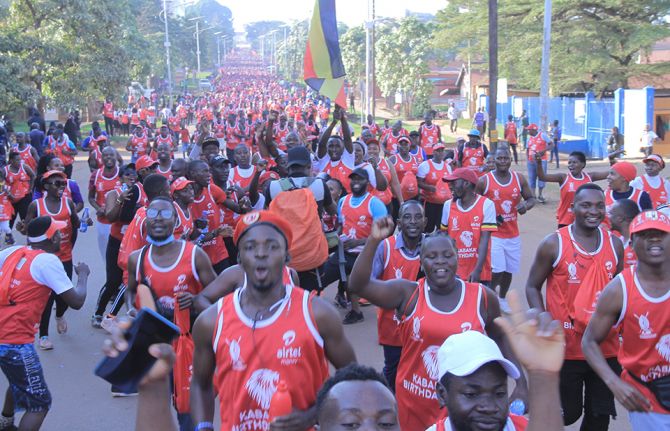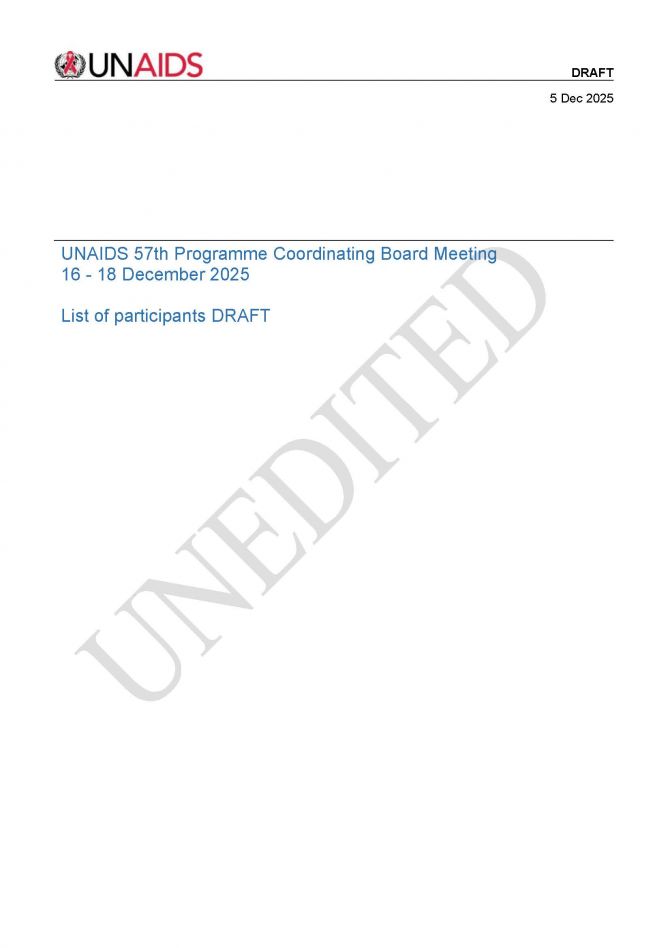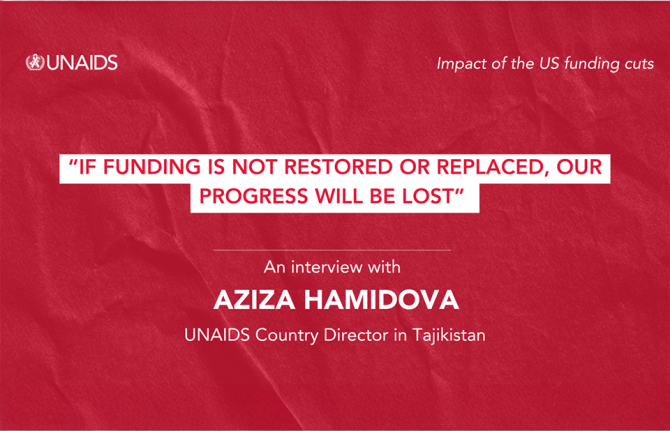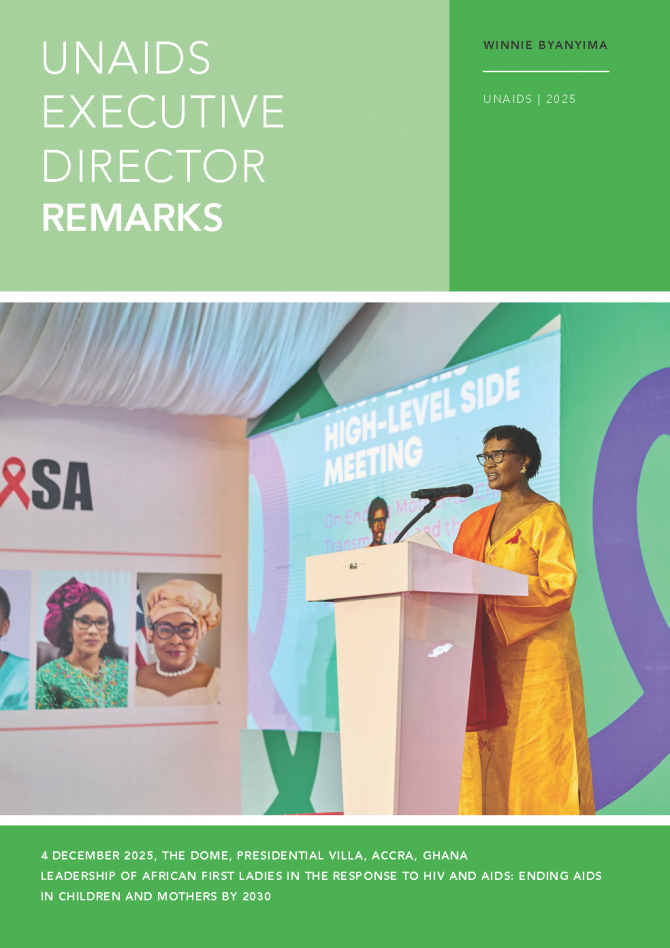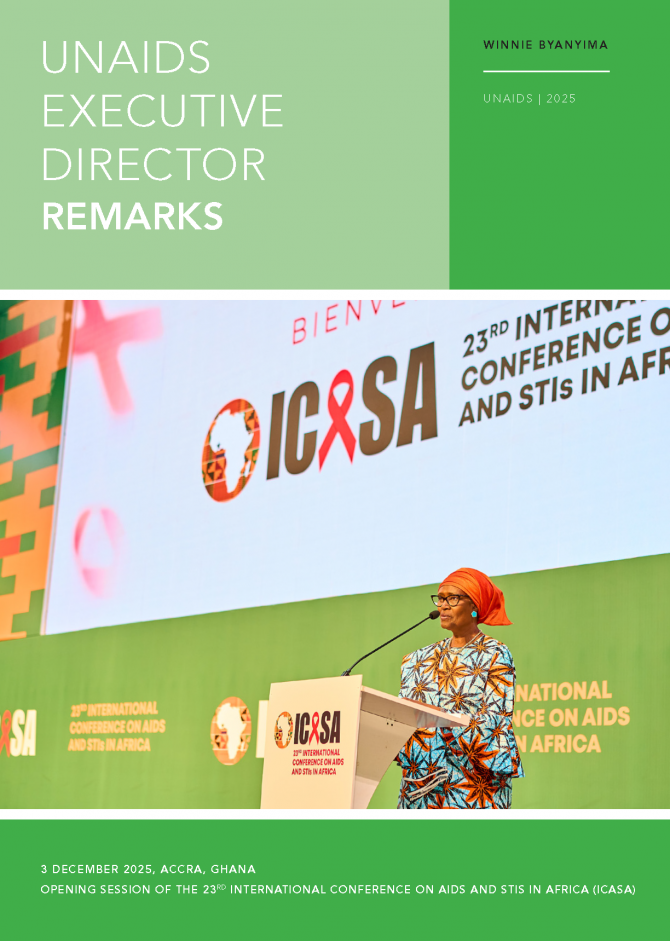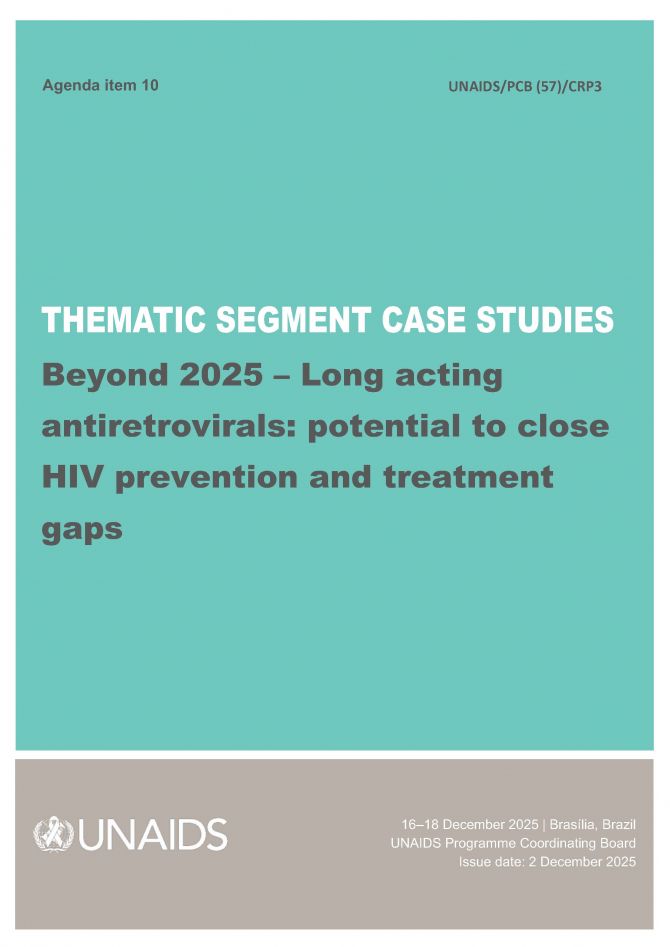
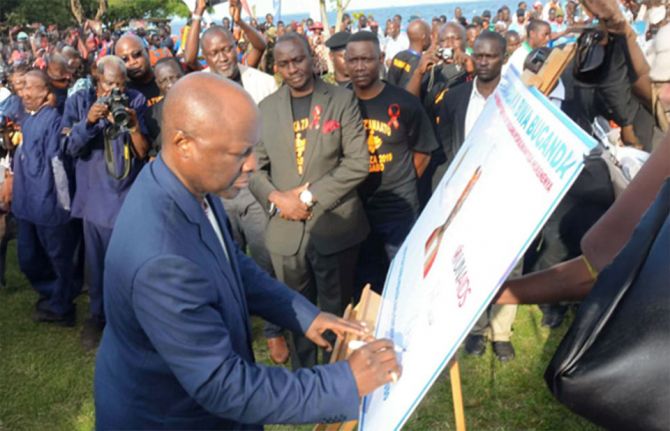
Feature Story
Innovative high-level leadership to strengthen and sustain the HIV response in Uganda
16 December 2025
16 December 2025 16 December 2025This story first appeared in the recently released World AIDS Day report 2025
Across eastern and southern Africa, men and boys are less likely to test for HIV, initiate antiretroviral therapy or remain engaged in care. As a result, although HIV prevalence is higher among women and girls, the number of AIDS-related deaths is higher among men and boys in the region.
One leader recognized the challenge and decided to use his influence to create positive change. In the traditional kingdom of the Buganda people within present-day Uganda, the King, His Majesty Mutebi II, has championed health and well-being over the course of his reign, including through a series of campaigns that aim to instil healthy social norms and health-seeking behaviours. Previous campaigns have focused on promoting polio immunization, blood donation, maternal and child health and physical exercise. Buganda is home to 12 million of the 49 million people living in Uganda.
Beginning in 2016, Uganda decided to harness the influence of traditional leadership to encourage men and boys to test for HIV, and for those who test positive to start and stay on treatment. This national effort, which the King carried forward in Buganda, is premised on the conviction that social influencers such as the King are uniquely well positioned to change the attitudes and social norms of men and boys. In 2017, UNAIDS appointed the King as a UNAIDS Goodwill Ambassador on ending AIDS in eastern and southern Africa to support and highlight the King’s leadership to improve HIV outcomes among men and boys in the kingdom.
To undertake his health promotion campaigns, the King leverages his influence to obtain financial support for campaigns and to maximize their reach and effectiveness. The King has been able to attract financial support for the health campaigns from private-sector partners such as Airtel Uganda and DFCU Bank to contribute to the health campaign focused on men and boys.
The King’s HIV advocacy campaign, Abaami Munyenye (“Men are Stars”), focused on men and boys aged 15–49 years living in districts with a high HIV burden. The campaign used innovative means to generate resources and reach men and boys with key messages, including at major sporting events, such as a marathon to celebrate the King’s birthday, which attracted 50 000–60 000 participants (85% male), and the Malaza football cup, which attracted 20 000–30 000 fans. In addition to leveraging these events to reach tens of thousands of men and boys with health promotion messages, the fees paid by event participants raised funds to support health services for men and boys.
The advocacy campaign has had a clear positive impact on HIV outcomes in Buganda. From 2016 to 2020, the percentage of people living with HIV who knew their HIV status rose from 89% to 94%, HIV treatment coverage increased from 64% to 92%, and the number of new HIV infections declined by 52%.
The King’s previous health promotion campaigns typically ran for three years each, but there was consideration in 2025 to replace the HIV campaign. With donor cutbacks potentially jeopardizing national momentum towards HIV epidemic control, the King determined that now was not the time to move on from the HIV response. As a result, the campaign to improve HIV outcomes is now continuing across the kingdom.
2025 World AIDS Day report
Region/country

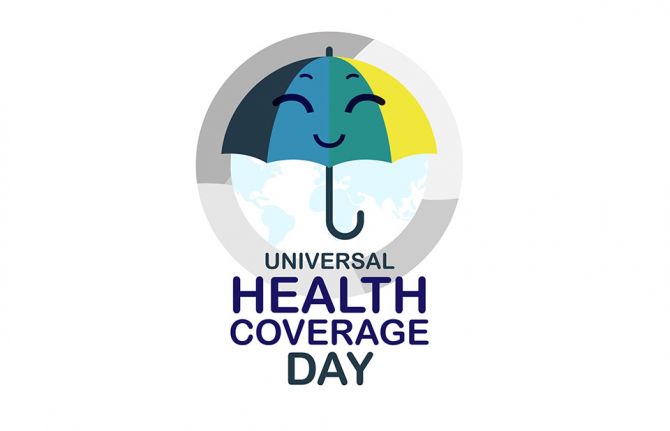
Press Statement
Inclusive, rights-based HIV services a key component to Universal Health Care
12 December 2025 12 December 2025GENEVA, 12 December 2025–For the past four decades, the HIV response has worked hard advocating for HIV treatment but also other HIV and health services that are free, without stigma or discrimination, people-centred, and grounded in human rights. It is by delivering inclusive, rights-based HIV and health services, that Universal Health Coverage (UHC) can be achieved.
On Universal Health Coverage Day, UNAIDS stresses the importance of UHC so that everyone has access to the quality health services they need without suffering financial hardship due to the cost of paying for those services. UHC should include quality essential HIV services from prevention to treatment through a clearly defined health benefit package.
“The HIV response is a stress test for UHC so when people living with HIV, key and other vulnerable populations are excluded, the entire health system fails,” said Angeli Achrekar, UNAIDS Deputy Executive Director, Programmes. “When they are included however, the system becomes stronger, fairer and more efficient for all.”
Currently 9.2 million people still do not have access to HIV treatment, and millions more cannot obtain PrEP– medicine which prevents HIV. UHC, health security, and ending HIV, Tuberculosis and malaria are not separate ambitions. They are intersecting global goals that can only be attained as one. In addition, as the HIV movement learned long ago: health is never just the health sector’s job.
Communities have shown the clearest path to UHC with community-led testing, peer navigation, differentiated service delivery, rights advocacy, and accountability. People need integrated services throughout their lives, delivered where and by whom they prefer, including by their own communities.
“UHC cannot be universal unless it works for people living with HIV and other affected communities,” said Florence Riako Anam, Co-Executive Director GNP+ (Global Network of People Living with HIV). “UHC will only succeed when our voices, our leadership, and our lived experience shape the services and care we rely on to stay alive.”
On UHC Day, UNAIDS calls on governments and partners to:
- Sustainably fund HIV and community-led services
- Remove discriminatory and punitive laws
- Integrate HIV services with primary health care without compromising rights or quality
- Put people living with HIV and communities at the centre of decision-making, service delivery design and implementation
Ending AIDS and achieving UHC together is a powerful and necessary legacy for today’s leaders. It is also a shared responsibility from governments, communities, development partners to the private sector as well as individuals. The forthcoming Global AIDS Strategy for 2026–2031 and the next generation of HIV integration targets are fully aligned with UHC affirming that progress on HIV and progress on universal health coverage is inseparable.
The way forward is integration.

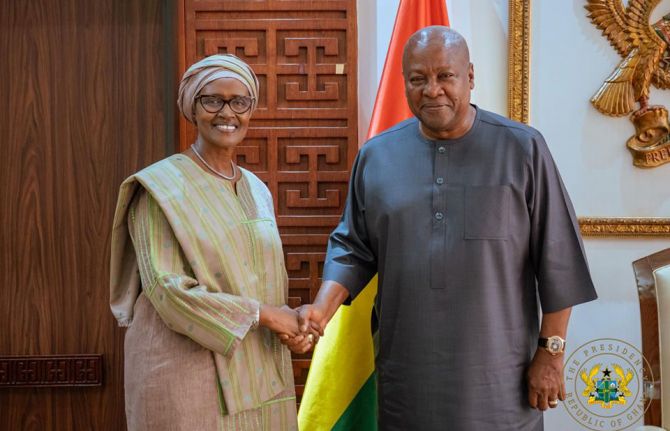
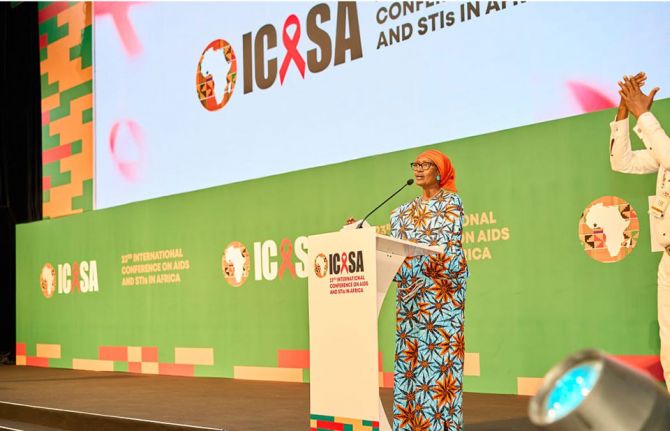
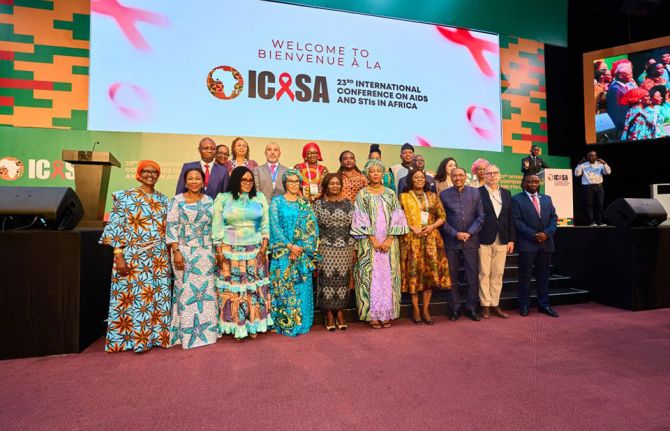
Press Release
UNAIDS calls on African leaders to resource the HIV response, protect human rights, and seize the opportunity of new innovations to end AIDS
10 December 2025 10 December 2025The Executive Director of UNAIDS Winnie Byanyima made the call during the African AIDS conference ICASA in Accra, Ghana saying “ending AIDS is a political choice”
ACCRA/GENEVA, 10 December 2025—African leaders can put the continent back on track to end AIDS by 2030 by choosing to resource the HIV response, protect human rights, and seize the opportunity of new innovations was the strong message brought by UNAIDS to the 23rd International Conference on AIDS and STIs in Africa (ICASA).
“Ours is the continent with the highest HIV burden in the world—we are only 19% of the world’s population, but we make up 65% of the total number of people living with HIV globally,” said Ms Byanyima. “More than half of the people waiting for treatment live here on this continent. More than half of all the new HIV infections every year happen here in Africa. Yet we have the science, the tools, the knowledge that’s needed to end AIDS. AIDS is no longer a medical challenge. Ending AIDS is a political choice.”
A sudden, rapid acceleration of cuts to international HIV financing, alongside spiralling debt burdens and a regression of human rights, is threatening fragile progress in reducing AIDS deaths and HIV infections – with HIV prevention and community-led services worst hit.
Addressing leaders at the conference, Ms Byanyima said that Africa was not being beaten down by the decline in foreign assistance, “Our continent is moving steadily towards more sustainable, inclusive, and domestically-financed HIV responses,”
UNAIDS is supporting governments to mobilise more domestic resources of HIV, developing roadmaps to move towards more sustainable HIV financing, urging international partners to support debt relief for health, and calling for regional initiatives – including the Accra Reset and African Union Roadmap to 2030 – to move from planning to implementation.
UNAIDS warned African leaders that the determined, organized and well-funded backlash against human rights and gender equality is pushing people further away from life-saving HIV services. The number of countries criminalising same-sex relationships has increased this year for the first time since UNAIDS began reporting.
“These laws are not African in origin, they are colonial-era imports, which are now reinforced by global ideological movements,” said Ms Byanyima. “To protect people’s health, we must protect their rights. There’s no choice there. This is at the heart of our belief, our African values, Ubuntu, which means “I am because we are.”
UNAIDS highlighted the potential of new long-acting HIV medicines to spark a HIV prevention revolution, to mirror the HIV treatment revolution of the last 30 years. This includes long-acting injectable PrEP, which prevents transmission with injections as little as twice a year. Ms Byanyima called on producers – particularly lenacapavir producer Gilead - to do more to enable access, including licensing generic production in sub-Saharan Africa and in Latin America. She urged African governments and international partners to invest in getting long-acting PrEP to all those who need it.
In the longer term, UNAIDS is calling for governments to invest in regional manufacturing and innovation. Ms Byanyima praised the Global Fund for procuring a first-line HIV treatment produced in Kenya which is now saving lives in Mozambique, and welcomed the Global Coalition for Local and Regional Production, Innovation and Equitable Access, launched under Brazil’s G20 Presidency to overcome unequal access to health technologies that often drive disease.
ICASA, the International Conference on AIDS and STI’s in Africa, is a biannual conference which was held this year in Ghana’s capital Accra between 3-8 December. ICASA brought together stakeholders from multilateral institutions, scientists, governments and community-led organizations to establish ways forward and keep the momentum to end AIDS by 2030 across the African continent.

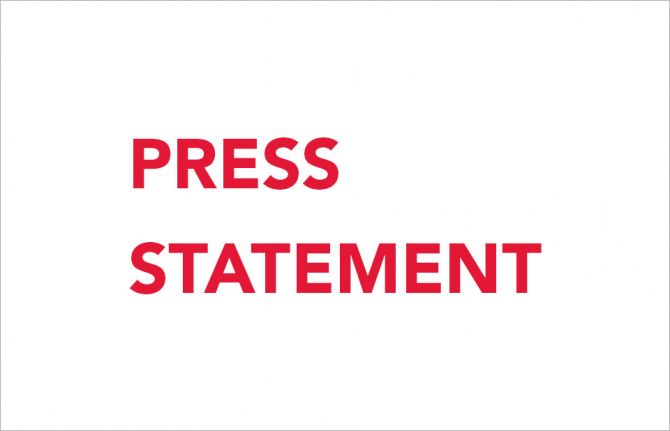
Press Statement
Human Rights Day statement
10 December 2025 10 December 2025Geneva, 10 December 2025 – This Human Rights Day the global HIV response is facing its most challenging moment in decades.
A new UNAIDS report released last month ahead of World AIDS Day 2025, Overcoming Disruption, Transforming the AIDS Response details the far-reaching consequences of international funding reductions. Millions of people have lost access to HIV prevention services and the critical support to access life-saving treatment services. A deepening funding crisis, geopolitical fragmentation, and rollback of human rights protections have disrupted services and jeopardized decades of progress.
The advocacy of people living with, affected by and vulnerable to HIV, communities and civil society allies, who have built and sustained significant community health systems and have championed a human rights and gender transformative approach, has made an unparalleled contribution to the progress made to date in reaching people with HIV prevention, treatment and care services.
The current disruption of the HIV response also takes place in a growing anti-rights and anti-gender context, and when most high burden countries that were receiving external financial support for the HIV response have limited fiscal space, are highly indebted, and not immediately able to fund their domestic responses to HIV.
Punitive laws, stigma and discrimination continue to block access to HIV services for the most marginalized communities: women and girls, LGBTQ+ people, sex workers, people who use drugs, and incarcerated populations. When rights are denied, health is denied. When people fear arrest or violence for seeking care, the epidemic grows. Protecting and promoting human rights is therefore not optional, it is essential to ending AIDS.
However, amid these challenges, we see resilience. Communities are stepping up, governments are increasing domestic investments, and innovations in service delivery are emerging. But transformation will only succeed if it is anchored in human rights.
Human rights-based approaches are essential to a sustainable HIV response. Fostering resilient societies where human rights are protected and communities are enabled to lead requires long-term structural and systemic changes, including investments. This Human Rights Day, UNAIDS calls on global leaders to:
- Reaffirm global solidarity, multilateralism and the collective commitment to fight and end AIDS together; maintain funding for the response; and to invest in innovation, including affordable long-acting HIV prevention and treatment options.
- Uphold human rights. Empower communities.
- We call on all partners to defend the right to health as a fundamental human right. This means standing firm for bodily autonomy and sexual and reproductive health and rights, ensuring that every person has the freedom and dignity to make decisions about their own body and health.
- And we must strengthen community-led action, because communities are at the heart of every successful response. Their voices, leadership, and lived experience drive progress and accountability
Related resources

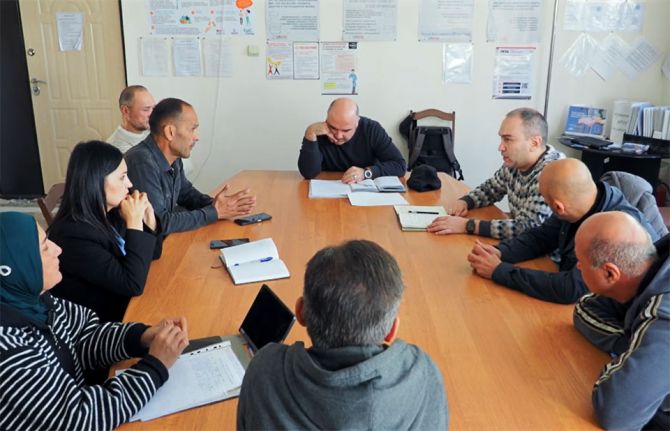
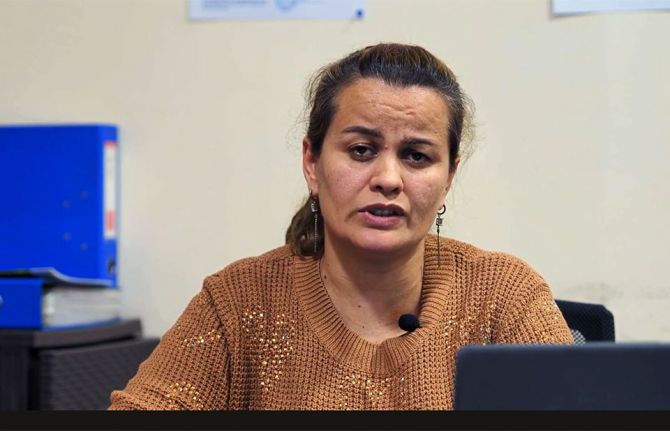
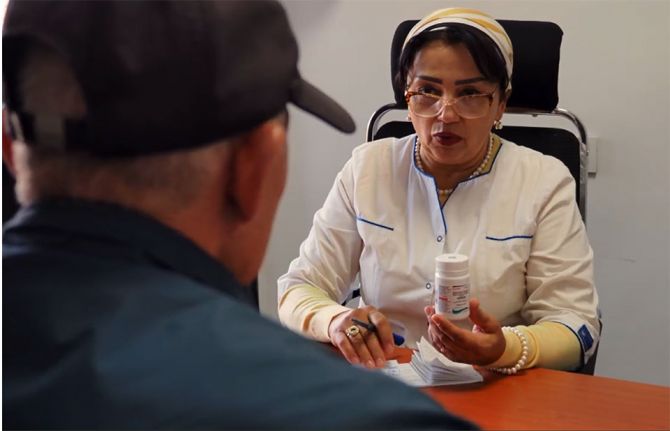
Feature Story
The impact of donor cuts on community-led responses in Tajikistan
08 December 2025
08 December 2025 08 December 2025Takhmina Haidarova and Pulod Jamalov are among the very few HIV activists in Tajikistan living openly with HIV. For years, they have been the public faces of courage—challenging stigma, supporting others and ensuring no one faces HIV alone. Through their organizations, the Tajikistan Network of Women Living with HIV and Spin Plus, they have built lifelines for people living with HIV and people from key populations, including people who use drugs.
Now, those lifelines are at risk of disappearing. Recent funding freezes and cuts to international HIV assistance threaten to close community-led programmes across the country. “People are panicking,” says Takhmina. “If our support services shut down, women affected by HIV, families with children living with HIV, and people from key populations will have nowhere to turn.”
Tajikistan is a small, mountainous, landlocked country in central Asia, bordered by Afghanistan, China, Kyrgyzstan and Uzbekistan. Despite economic growth, it remains the poorest country in the region, with nearly a third of its gross domestic product coming from remittances. It faces deep social and structural challenges—a fragile health system, restrictive laws, gender inequality, and powerful traditional and religious norms that fuel stigma and discrimination.
For people living with HIV, these challenges can be overwhelming. Nearly 97% of women living with HIV in Tajikistan conceal their HIV status, even from family members, and 64% report discrimination, including from health-care providers.
For Takhmina, the fight is personal. She acquired HIV from her husband, a labour migrant in the Russian Federation, and was rejected by the family after his death. “I did not even know HIV existed in Tajikistan,” she says. “I had no knowledge, no support, no one to turn to.” Now, through the Tajikistan Network of Women Living with HIV, she helps other women navigate the isolation she once faced.
“Community groups like ours are the only ones people trust,” says Pulod Jamalov, Director of Spin Plus. “We go where the system does not reach—into prisons, remote villages and migrant families. Without us, many people will simply be left behind.”
Until now, international partnerships have made real progress possible. HIV-related mortality has halved since 2020 in Tajikistan, and vertical transmission dropped to 0.8% in 2024, with only one such case recorded that year.
But this progress is fragile. About 60% of the HIV response in Tajikistan depends on international donors, of which about 20% was funded by the United States President’s Emergency Plan for AIDS Relief (PEPFAR) until January 2025. Around 37% of the national programme is now financed domestically, marking a step towards sustainability. The Government covers all costs for prevention of vertical HIV transmission, including HIV testing for pregnant women. In 2025, for the first time, the Government of Tajikistan allocated national funds to procure 10% of the country’s antiretroviral (ARV) medicines.
National authorities estimate that even a 10–20% reduction in funding could trigger a 135% increase in the number of new HIV infections and a 5% increase in mortality, erasing years of gains.
In January 2025, two major community health centres providing stigma-free care were closed, and outreach, testing and counselling stopped altogether. When these centres temporarily resumed their operations, they recorded a noticeable decline in the number of clients seeking or referred for services. Community-led monitoring, once a key accountability tool, has been completely discontinued.
Tajikistan has shown what is possible with targeted support. But unless donors, governments and international partners act quickly to protect community-led services, those gains will be reversed.
Watch: Funding cuts disrupt HIV response in Tajikistan
Region/country

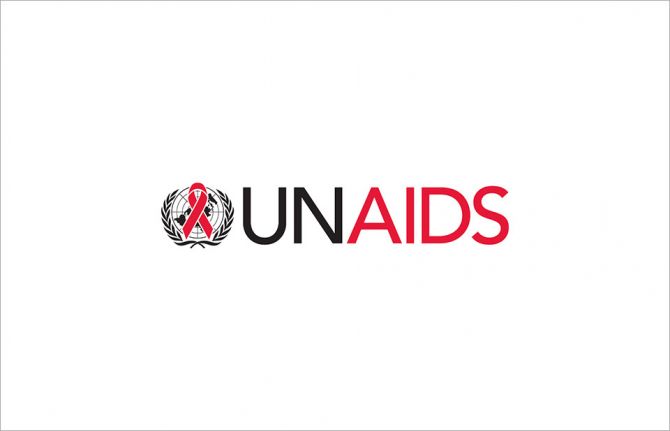
Press Release
UNAIDS welcomes new agreement between the United States and Kenya to advance progress to end AIDS and strengthen health systems
04 December 2025 04 December 2025WASHINGTON/GENEVA, 4 December 2025—UNAIDS welcomes the signing of a landmark five-year Health Framework for Cooperation between the United States Government and the Government of Kenya to advance strengthened cooperation on HIV and other key areas of health.
The agreement was signed today in Washington DC by US Secretary of State Marco Rubio and President of Kenya William Ruto. It builds on decades of shared commitment between the US and Kenya through the US President's Emergency Plan for AIDS Relief (PEPFAR) and represents a renewed demonstration of shared solidarity, co-investment, self-reliant systems and resolve to save lives, reduce new HIV infections, and advance progress towards ending AIDS in Kenya.
The agreement aligns with UNAIDS global targets—including ensuring that 95% of people living with HIV know their status, 95% of those diagnosed receive sustained, quality treatment, and 95% of those on treatment are virally suppressed. It also supports the goal of reducing new HIV infections and AIDS-related deaths by 90% by 2030, compared to 2010 levels.
In the signing, the US commits to provide up to US$ 1.6 billion over five years to support technical assistance, capacity building, and financial resources to reinforce Kenya’s national HIV and health response. In turn, Kenya has committed to provide around US$ 850 million in domestic funding to sustain and enhance the agreement.
UNAIDS considers today’s agreement between the US and Kenya a milestone in the future of global health cooperation, bringing renewed momentum to advance Kenya’s outstanding response to HIV and US leadership in the global HIV response.
As noted by Secretary Rubio, the agreement with Kenya is the first of 50 planned bilateral agreements with partner countries in coming weeks.
UNAIDS stands ready to support the US and Kenyan governments, civil society, communities, and other partners to support the implementation of this agreement and provide UNAIDS data and support. The historic global effort to end AIDS is advanced when governments and people stand together.
UNAIDS
The Joint United Nations Programme on HIV/AIDS (UNAIDS) leads and inspires the world to achieve its shared vision of zero new HIV infections, zero discrimination and zero AIDS-related deaths. UNAIDS unites the efforts of 11 UN organizations—UNHCR, UNICEF, WFP, UNDP, UNFPA, UNODC, UN Women, ILO, UNESCO, WHO and the World Bank—and works closely with global and national partners towards ending the AIDS epidemic by 2030 as part of the Sustainable Development Goals. Learn more at unaids.org and connect with us on Facebook, Twitter, Instagram and YouTube.



